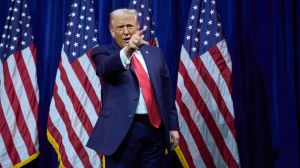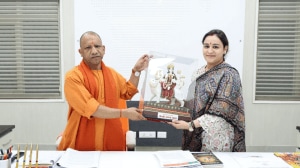Dr Singh, Xiaoping and China
Prime Minister Manmohan Singh was probably taking a leaf out of Deng Xiaoping Thought when he spoke at the JRD Tata commemorations in the ca...

Prime Minister Manmohan Singh was probably taking a leaf out of Deng Xiaoping Thought when he spoke at the JRD Tata commemorations in the capital on Tuesday. Lamenting the tyranny of the 8216;8216;inspector raj8217;8217;, Singh pointed out that while there were 31 inspectors to clear one factory in India, there were only six in China. The PM8217;s message, just like Deng8217;s to China 25 years ago, was that there was no staying away from the irrevocable trend of globalisation.
China8217;s websites are, in fact, flooded with their own eulogies to Deng on his hundredth birth anniversary that fell on August 23. The Theory of Deng Xiaoping, the People8217;s Daily pointed out, consists of easily understandable phrases that people can remember without reference to books or dictionaries. Such as, 8216;8216;Development is of overriding importance8217;8217;, 8216;8216;Science 038; technology is the primary productive force8217;8217; and 8216;8216;Poverty is not Socialism8217;8217;. The last may be especially applicable to India.
But there8217;s another Deng phrase called the 8216;8216;peaceful rise of China8217;8217; 8216;8216;heping juechi8217;8217; in Mandarin that is currently in the eye of the storm back in China and under attack from another phrase, 8216;8216;the peaceful development of China8217;8217; 8216;8216;heping fanjian8217;8217;, which is propagated by another school of thought. Clearly, we haven8217;t heard the last of the ongoing internal political struggle in Asia8217;s most powerful nation.
Seeing Red in Nepal
Believing that power cannot be won from the barrel of a gun, India has so far largely ignored the Maoist insurgents in Nepal8212;except for the time during the peace talks last year when Babu Ram Bhattarai met a senior official in the Indian Embassy. But as the Maoists have been able to prove beyond a shadow of doubt that they are able to bring life to a standstill wherever they choose8212;such as in the Kathmandu valley in the last week8212;an alternative view may perhaps be beginning to emerge in New Delhi. According to this school of thought, the Maoists may have a number of progressive ideas, especially on the socio-economic front, that all sides must look at seriously. At the same time, the Maoists must be told that it isn8217;t possible to overthrow the existing dispensation in Nepal, whether it is the constitutional monarchy or the political parties. And in fact, if they wait much longer to arrive at a reasonable compromise, the international community read India, the US could get its act together and seriously apply both military and political pressure.
Meanwhile, a senior UNICEF official, a Nepali citizen called Kul Gautam, who believes the UN should get more seriously involved in Nepal, has been doing the rounds in Delhi, meeting people from key political parties. Problem is, the Foreign Office completely shuns a role for the UN in Nepal.
Maldives: the Islam connection
New Delhi8217;s continuing relationship with the Abdul Gayoom dispensation in Maldives reveals more and more interesting facts. When former PM A B Vajpayee visited Male in September 2002, he announced that two historic mosques had been given money by the then NDA government for 8216;8216;renovation8217;8217;. One of the mosques, Fenfushi, had been completely renovated at the time of Vajpayee8217;s visit, while another, the 8216;Dharmavantha Raskefanu8217;, was soon going to be. Perhaps the NDA government was underlining its multi-religious credentials by offering to renovate the mosques. Interestingly, one of the excuses the Gayoom government gives, especially to foreign leaders like US Secretary of State Colin Powell who stopped by in Male last month, for his emergency is that the Opposition he has banned includes 8216;8216;radical Islamists8217;8217;.
- 01
- 02
- 03
- 04
- 05































